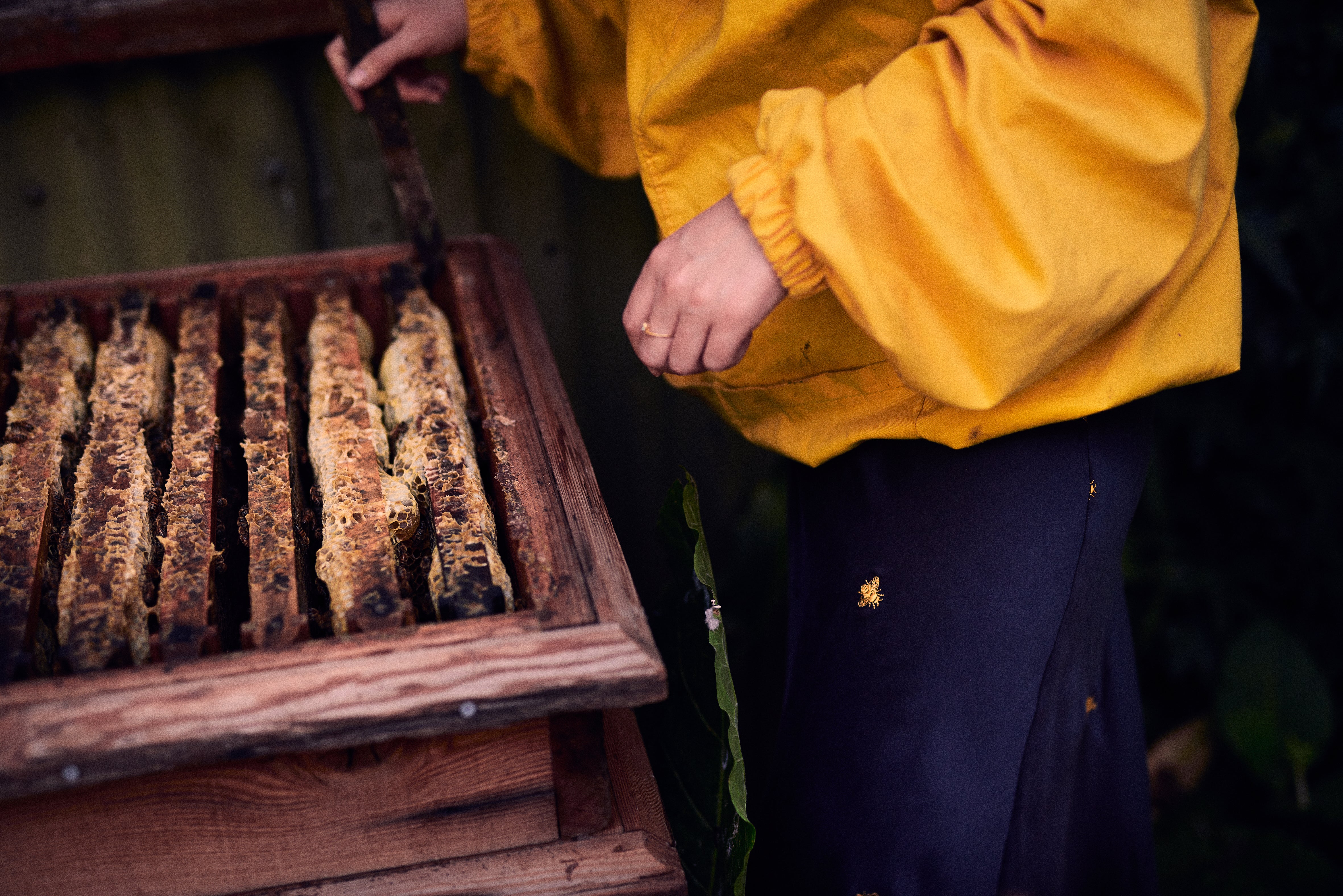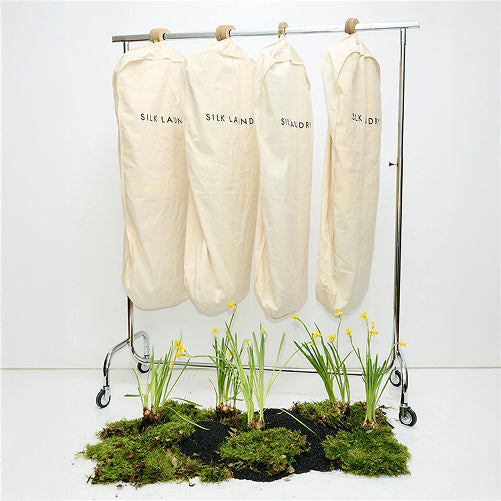
An Interview With Planet Bee
Planet Bee Foundation is an environmental non-profit dedicated to creating a green-minded generation by inspiring environmental stewardship and educating students about the struggling honey bee. Founded by husband and wife duo, Bill and Debra Tomaszewski, who were devastated when Colony Collapse Disorder was discovered in 2006; a disorder with consequences that meant not only losing bees but also losing the ability to pollinate fruit and vegetable crops. They now have a shared vision to create a future in which children and adults are exposed to global environmental issues and have the tools to combat them.
Late last year, we released an exclusive run of 250 charity slips featuring tiny embroidered bees to raise both money and awareness about this global environmental issue. This activation enabled us to donate a total of $15,000 to Planet Bee, a cause that is very close to our heart.

We recently caught up with Debra and Bill to find out how they've been coping since the recent global pandemic and some of the simple at-home ways we can help lessen the decline of the bees.
SL: Can you tell us a little about what you do and why?
PB: Planet Bee Foundation is an environmental education non-profit on a mission to change the world one bee and one mind at a time! We empower people from all walks of life to take small, individual actions that will help the environment, by using the teaching lens of struggling bee populations.
SL: How have you grown since 2010 when you first launched your organisation?
PB: Planet Bee began as a grassroots movement when my husband Bill and I would bring our backyard bees into our children’s classrooms. As a teacher, I realized this was an excellent platform to inspire the next generation of green-minded students, so I created a hands-on, developmentally-appropriate, play-based curriculum to assist in fostering a connection with our honey bees and the environment as a whole. Since becoming 501(c)(3) certified in 2015, we have taught over 30,000 children!
SL: What has been your biggest challenge?
PB: Keeping up with the incredible growth and demand for our programs has been a challenge but in the most wonderful way. Our staff wears many hats and we are constantly educating ourselves on the latest trends in education and the nonprofit sphere. This is why we are so grateful to our partners as they provide funds and opportunities, so we continue on this journey of meaningful expansion.

SL: How and where does your organisation apply donations?
PB: We are so grateful for donations, as they fund our no or low-cost education programs at high needs schools and community organizations. We see about 5,000 kids a year for free due to our generous donors and partners.
SL: What does collaboration mean to you?
PB: Our goal is to change mindsets and bees are the perfect vehicles to accomplish this. Collaboration is invaluable, especially when it comes to shaping the minds of future green leaders. Collaboration helps us create change in the classroom or a corporate setting. When we are able to collaborate with people who are exposed to environmental issues in a way where they feel empowered, they are more likely to take individual actions that lead to permanent and positive changes.
SL: What is the most rewarding part of working with and teaching students?
PB: When a student has the opportunity to see bees up close, curiosity sparks, fear fades, and gardens become ecological playgrounds. Bees are such tangible and familiar creatures, which is why they do such a wonderful job of connecting children with the environment and showing kids that they have the ability to make a lasting impact on the earth.

SL: Do you have goals in mind for your organization for the rest of the year and the coming year?
PB: We are excited to continue to find innovative ways to impact our community. Recent hurdles have provided us with new ideas and opportunities to inspire people of all ages to help change the world.
SL: How have you adapted to the recent global pandemic?
PB: We are currently adapting and modifying our diverse STEM programs to fit the current virtual and distance needs of classrooms, camps, and events. Of course, we cannot wait to return to the classroom, but in the meantime, we are finding creative and meaningful ways to impact the community from afar. We quickly modified our eco-literacy lesson, the Humble Honey Bee, and shared it with more than 150 teachers who had been scheduled for this past spring. For Earth Week, we held two virtual Hive Dive Lives, where we explored the inner workings of a beehive and answered live questions from students. In the last month, we have donated 155 native bee house kits with engineering lessons to children in emergency childcare programs. Although the current climate has created new obstacles, we look forward to continuing to find ways to impact the community through environmental education.
SL: How has the pandemic helped your organization on an environmental scale?
PB: The pandemic has impacted the environment in many ways, including an unprecedented display of a reduction in carbon emissions, which directly influences our pollinator friends. Beyond that, the push towards virtual programs has proven to be beneficial to Planet Bee in multiple ways, as we are now able to reach a wider audience, allowing us to increase the number of students we can teach and inspire to take steps towards becoming environmental stewards.
SL: What are some simple at-home ways people can help to lessen the decline of the bee?
PB: There are a few fun, easy ways to help the bees from home. If your home has access to the outdoors, planting native flowers, providing a water dish with stones in it, or making a native bee house are all great ways to support local bee populations. Avoiding foods that use pesticides and purchasing your honey from a local beekeeper are other ways to help out as well!
For further information about Planet Bee or to find out more ways you can help, visit their website here.




